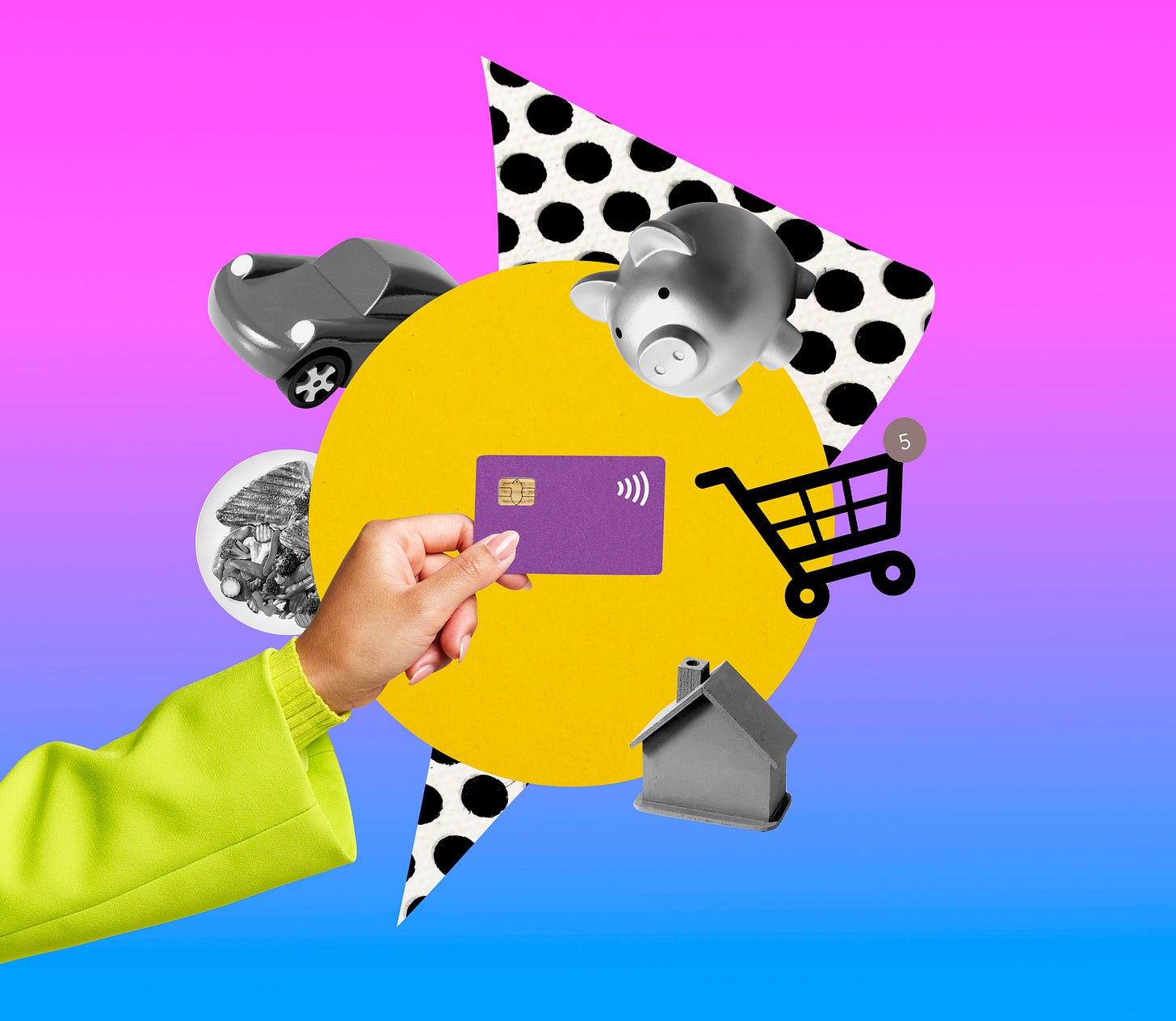Less Stuff, More Life
Resisting the empty promise that buying this or that is your ticket to happiness will not only save you money, it will remind you of what matters most.
When my daughter Vivian was in second grade, the teacher told the class a story about a little girl who desperately wants a new scooter. She already has a scooter but not the cool bright pink one with rainbow tassels hanging from the handlebars that some of the other girls have. Her mom reminds her of the other scooter she really really wanted but that ended up barely used in the closet. This time, she insists, it will be different. It isn't.
The teacher told the story to kickstart a conversation about the difference between wants and needs. A need is something that is necessary to live and a want is something that would be nice to have but you can live without. Vivian's homework was to make a list of wants versus needs in her own life. Water and milk were on the needs list. Ice cream and cookies were on the wants list. The exercise made her more appreciative of what she had and also reminded her to consider the needs of others before focusing on her wants.
This message stands in stark contrast to the hyper materialistic culture we inhabit. "I see it, I like it, I want it, I got it" croons Ariana Grande in her hit song, 7 Rings. It's an anthem for consumerism and an ode to retail therapy.
She continues "Whoever said money can't solve your problems / Must not have had enough money to solve 'em..."
With all due respect to the wildly talented Ms. Grande, buying more stuff does not bring lasting happiness. In fact, materialism is much more likely to make us miserable than merry. New stuff may provide fleeting pleasure but the novelty quickly wears off. Before long, those coveted designer jeans end up in the back of the closet and we are left longing for a new pair. Ariana Grande's song, "Thank U, Next" comes to mind (sorry, I can't resist). It's a soulless cycle of dissatisfaction.
The relentless pursuit of material goods leaves us feeling empty and unfulfilled. A study of prospective car buyers found that they overwhelmingly believed that buying a luxury car would make them better off than getting a standard vehicle. Yet when drivers of luxury cars were surveyed, those who had decided to purchase a high-end auto reported no greater happiness than those who did not.
Acquiring more stuff goes hand in hand with our vision of the good life but is much more likely to erode our self-esteem. Placing less value on things is a more reliable path to joy and contentment in life. The good news is that a 2015 study found that it is possible to reduce our misplaced longing for more and more stuff. In the study, a group of adolescents were asked to participate in three sessions where they learned about consumer culture and to consider what they value most in life such as friendship, family, and giving back to the community. Results showed the adolescents became less materialistic, had greater self-esteem, and were more content than those who didn't participate in the sessions.
By focusing on what was intrinsically meaningful to them, they gained perspective and were able to distance themselves from the "more is more" rat race.
If spending money on new stuff doesn't bring enduring happiness, what should we be spending it on? Research from Harvard University provides three suggestions:
Buy time (hire people to help you with tasks you don't enjoy)
Buy experience (go on a trip with family)
Give it away to charity or other people
My last suggestion: Have a "Stuff-Free" week. Spend money on needs and others only. Skip the wants including logging time on websites with stuff you lust after like Zillow or Zappos. Resisting the empty promise that buying this or that is your ticket to happiness will not only save you money, it will remind you of what matters most.






